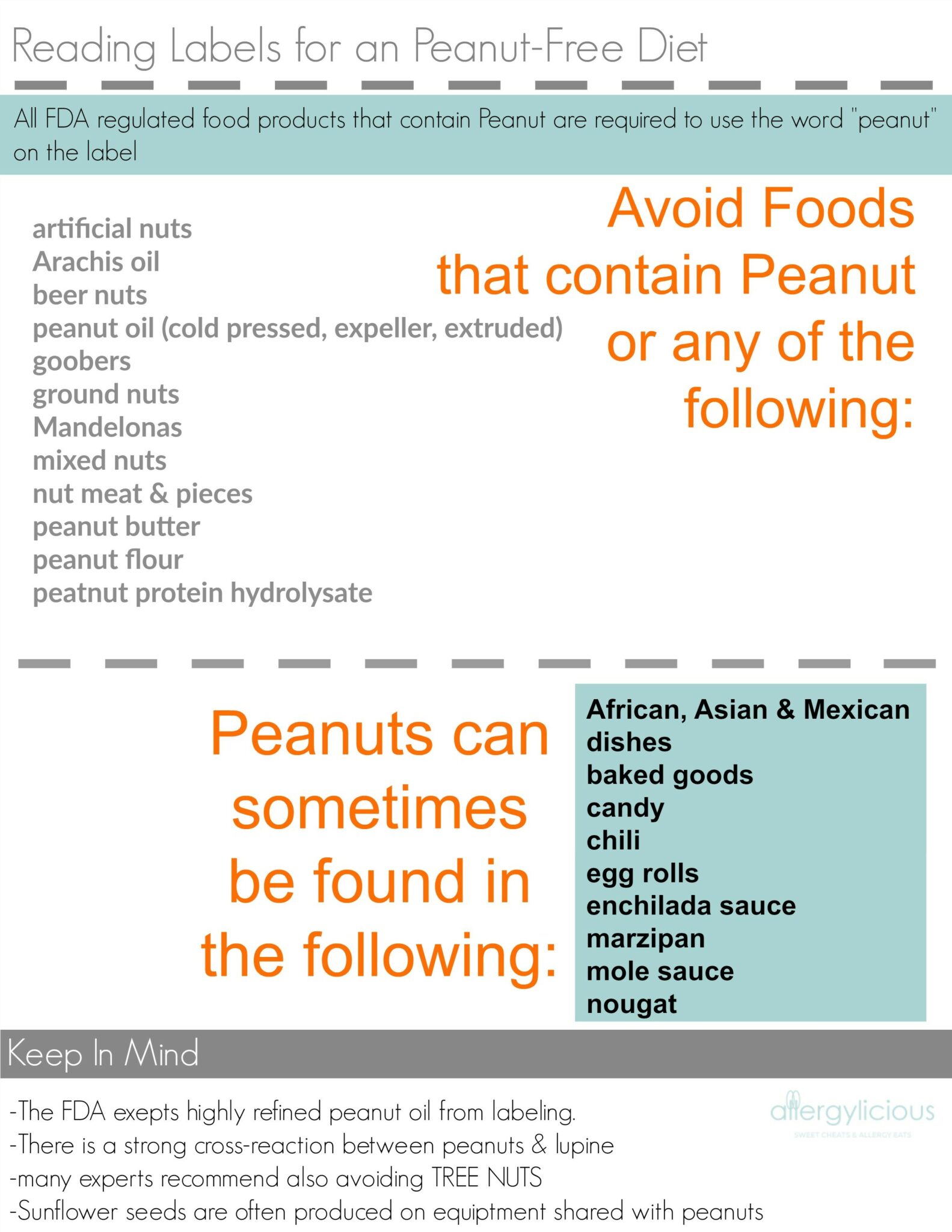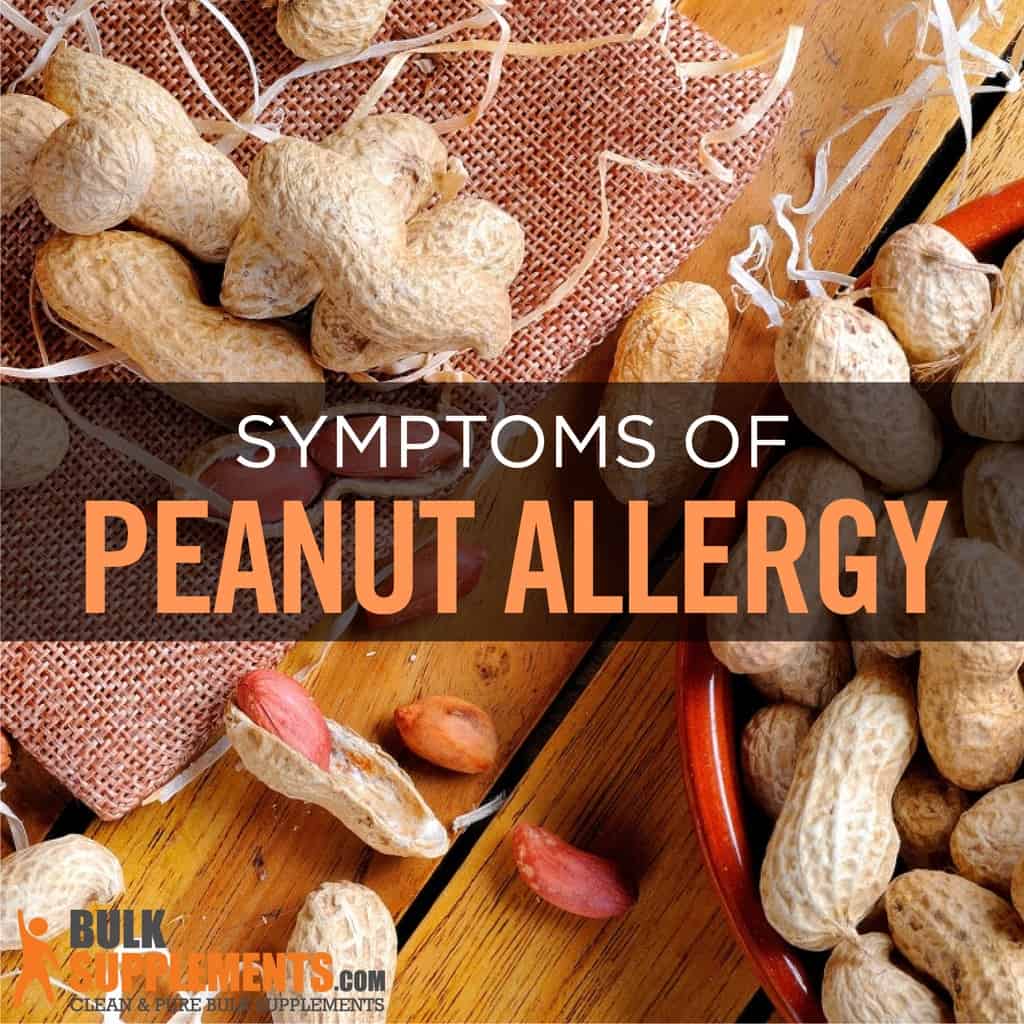Peanut Allergy: Crucial Facts About This Serious Food Reaction
Detail Author:
- Name : Leola Kunze
- Username : simonis.jarvis
- Email : ntillman@halvorson.org
- Birthdate : 2006-06-07
- Address : 1942 Yost Corners West Russelview, RI 99561
- Phone : 979.948.4896
- Company : McClure, Bechtelar and Schoen
- Job : Supervisor of Police
- Bio : Quia et autem et libero. Enim doloremque illo deleniti rerum quia. Aliquam in ducimus accusantium accusantium quae.
Socials
linkedin:
- url : https://linkedin.com/in/sanfordleannon
- username : sanfordleannon
- bio : Perferendis aut suscipit eius sapiente.
- followers : 4537
- following : 19
tiktok:
- url : https://tiktok.com/@sanford_official
- username : sanford_official
- bio : Vero repellendus aut quo odit.
- followers : 335
- following : 1132
instagram:
- url : https://instagram.com/sleannon
- username : sleannon
- bio : Facere et omnis aperiam corrupti. Deleniti et est eligendi ea.
- followers : 4862
- following : 130
Living with a food allergy can feel like a constant balancing act, and for many, peanut allergy stands out as a particularly serious concern. It's not just a simple dislike of a food; instead, it represents a profound immune system response that can cause quite a bit of trouble for someone. We're going to talk about what makes peanut allergy so important to understand, especially since it affects so many people around the globe. You know, it's something that really impacts daily life for individuals and their families, so getting the right information is a big help.
This specific type of food allergy involves the body reacting strongly to peanuts. It's interesting to note that, actually, peanuts are not like other nuts you might think of, such as walnuts or almonds. Peanuts, you see, are legumes, which means they grow underground, more like peas or beans. This difference is pretty important because it means a peanut allergy is separate from tree nut allergies, even though sometimes people confuse them, as a matter of fact.
Knowing the facts about peanut allergy is really vital for safety and managing this condition. We'll explore what happens when someone has a reaction, why it's often a lifelong issue, and why it's become such a common health concern in recent times. You know, understanding these details can make a real difference for those who live with this challenge every single day.
Table of Contents
- What is Peanut Allergy?
- How the Body Reacts
- A Lifelong Condition
- Why Prevalence Matters
- Managing the Condition
- Frequently Asked Questions
What is Peanut Allergy?
A peanut allergy is basically a condition where your body's defense system, your immune system, gets a bit confused. It sees peanuts as a threat, even though they're harmless to most people, and then it overreacts. This means your body starts to fight against something that isn't actually going to hurt it, which causes the allergy symptoms you might see or feel. It's pretty much a miscommunication within the body, if you think about it.
Not a Tree Nut
It's interesting to point out that, in fact, peanuts are often mistaken for tree nuts. However, as we mentioned, they are actually legumes. This means they belong to the same family as beans and lentils, growing beneath the soil. This distinction is important because having a peanut allergy doesn't automatically mean someone will also have an allergy to tree nuts, and vice versa. So, you know, it's a separate category entirely, which is good to remember.
How the Body Reacts
When someone with a peanut allergy comes into contact with peanuts, their immune system, as we discussed, launches an attack. This attack can show up in different ways, and the physical signs of this allergic reaction can appear fairly quickly. Sometimes, you may have a reaction right away, or it could show up up to two hours after you've had a peanut, or even just been exposed to one. It's almost like a delayed response sometimes, which can be tricky.
Common Symptoms
The symptoms of a peanut allergy can vary quite a bit from person to person, but there are some common ones that typically show up. You might see hives, which are red, itchy bumps on the skin. There could also be swelling, which can happen in different parts of the body, like the face or lips. Some people experience difficulty breathing, which is a more serious sign. Gastrointestinal pain, like stomach aches, is also a possibility, as are hives and respiratory problems. So, in a way, the body has many ways to signal something is wrong.
The Risk of Anaphylaxis
Among the various reactions, anaphylaxis is perhaps the most concerning. Peanuts are, in fact, one of the food allergens most commonly linked with this sudden and potentially deadly condition. Anaphylaxis is a very serious reaction that needs immediate attention and treatment. It's a total body response that can affect breathing and blood pressure, making it a truly urgent medical situation. This is why, you know, prompt treatment is so incredibly important.
A Lifelong Condition
For most people, a peanut allergy is something they live with for their entire lives. It's usually a lifelong affliction, meaning it doesn't just go away on its own over time. While about 20 percent of individuals might outgrow their peanut allergy, for the vast majority, it's a condition that stays with them. So, in some respects, it's a permanent part of their health profile, which means ongoing care is necessary.
Why Prevalence Matters
The number of people affected by peanut allergy has actually increased quite a bit, especially in Western countries. The prevalence of peanut allergy has, in fact, doubled over a decade, which is a significant rise. This increase makes it a growing public health concern. What's more, it's the leading cause of food allergy-related death in the United States, which really highlights its serious nature. This fact alone shows why it's so important for everyone to be aware of it, even if they don't have the allergy themselves.
Managing the Condition
Given the serious nature of peanut allergy, especially the risk of anaphylaxis, managing the condition carefully is absolutely essential for both adults and children. The primary way to avoid a reaction is, quite simply, to avoid peanuts completely. This means being very careful about what you eat and what foods might contain peanuts, even hidden ones. It's a constant process of checking labels and asking questions, really.
If an allergic reaction does occur, prompt treatment is required. This often involves using an epinephrine auto-injector, which is a device that delivers a dose of medication to counteract the severe symptoms. Knowing when and how to use this device is a critical part of managing the allergy. So, you know, having an action plan in place is a really smart move for safety.
The goal is to prevent any exposure to peanuts to keep individuals safe and healthy. This involves a lot of awareness and vigilance, not just for the person with the allergy, but also for their family, friends, and anyone else who prepares food for them. It's a community effort, you might say, to ensure safety and well-being. To learn more about allergy management on our site, you can visit our resources page. Also, you can check out our allergy resources for additional help.
For more detailed information on managing food allergies, you might find it helpful to look at resources from reputable health organizations, like those found at a trusted health organization. They often provide comprehensive guides and support for individuals and families dealing with allergies. It's a good place to start, actually, for a deeper dive into the subject.
Frequently Asked Questions
Here are some common questions people often have about peanut allergy, which might help clarify things for you.
Is a peanut allergy usually lifelong?
Yes, for most people, a peanut allergy is typically a lifelong condition. While about 20 percent of individuals might outgrow it, the majority will continue to have the allergy throughout their lives. So, it's generally something that stays with you, which means ongoing vigilance is important.
What are the common symptoms of a peanut allergy reaction?
Physical signs of an allergic reaction can include hives, which are itchy skin bumps, swelling, and difficulty breathing. Other symptoms might involve gastrointestinal pain and respiratory problems. These symptoms can appear right away or even up to two hours after exposure, you know, which can sometimes make it harder to pinpoint.
Why is anaphylaxis a serious concern with peanut allergies?
Anaphylaxis is a sudden and potentially deadly condition that requires immediate attention and treatment. Peanuts are one of the food allergens most commonly linked with this severe reaction. Because it can affect breathing and be life-threatening, it's a very serious concern that needs prompt medical help, as a matter of fact.

peanut-allergy_1600 - Futurity

Peanut & Nut Allergy 101 - Allergylicious

Can Peanut Allergy Go Away Archives